
[Editor’s Note: Gareth Powell is a British SF writer who has written three series, to wit the Ack-Ack Macaque series with airships and cigar-smoking-monkey fighter pilots, and the Embers of War with ships akin to those in Iain M. Banks’ Culture series. Powell’s latest series is The Continuance in which all of humanity has been exiled from Earth and is wandering the galaxy in vast ark ships. The latest novel in that series, Descendant Machine, came out in May. Both the Ack-Ack Macaque and Embers of War series had novels in them that won British Science Fiction Society Awards. Keep up with Gareth L. Powell’s Twitter, Instagram, and Facebook via Linktree. And at his Substack: Gareth’s Newsletter.]
What he taught me, and where to start with his work
My collection of Iain M. Banks books:

Iain [Menzies] Banks (16 February 1954 – 9 June 2013) was born in Fife and was educated at Stirling University, where he studied English Literature, Philosophy and Psychology. Banks came to widespread and controversial public notice with the publication of his first novel, The Wasp Factory, in 1984. His first science fiction novel, Consider Phlebas, was published in 1987. He continued to write both mainstream fiction (as Iain Banks) and science fiction (as Iain M. Banks). He is acclaimed as one of the most powerful, innovative and exciting writers of his generation: The Guardian called him “the standard by which the rest of SF is judged” and the New York Times-bestselling William Gibson described Banks as a “phenomenon”.
I only met the late Scottish author Iain M. Banks a couple of times before his untimely passing. On the first occasion, the organisers of Eastercon seated me beside him for a mass signing event. My novel, The Recollection had just come out and I had around ten people come to visit me during the course of the hour-long session. Iain, on the other hand, had at least a hundred—with some people rejoining the queue multiple times because they’d brought so many books for him to sign. A few of them glanced my way after securing his signature, and then moved on, unimpressed. It was a humbling, somewhat chastening experience for a new author, but at the end of the hour, Iain turned to me and said, “Don’t worry about it. One time, I had to sit next to Pratchett!”
Since my novel Embers of War first came out in 2018—and especially since the release this year of Descendant Machine—readers and reviewers have been comparing my work with Iain’s, so I wanted to write something about him.
Although William Gibson inspired me to start writing in earnest, it was Iain M. Banks who really opened my eyes to the possibilities of the genre and reignited my love for space opera. My first exposure to his science fiction came with Consider Phlebas. It was a gift from a friend, and it absolutely blew me away. After that, I read the others as they were published, savouring each one—and especially those set in Iain’s post-scarcity utopia, ‘The Culture’—as a rare treasure.
Iain taught me it was okay to think big and have fun, as long as you told a good story about complex, relatable characters—something I’ve been trying to do in my last five novels from Titan Books. Because of this, and because both our books feature sassy talking spaceships and tend to be set against huge cosmic canvases, many reviewers have drawn comparisons between us. As a huge fan of his work, these comparisons are extremely flattering, and I’m obviously very pleased if my books appeal to fans of his work. I am happy to continue flying the flag of literate, character driven space adventure, but I do think we have very different writing styles. I absolutely adore his books, but I’d never try to write like him; it wouldn’t ring true. I have my own voice, and I’m very happy using it.
The second time I met him, he was signing copies of his novel Surface Detail at a bookstore. For some reason, the signing had been scheduled for lunchtime on a weekday, so there were very few people there. Maybe half a dozen. When it was my turn to get my book signed, I reminded him of the “I once sat next to Pratchett” quote and he cackled.
Ian M. Banks left a profound influence not only on me, but on the science fiction genre as a whole. He wrote with compassion, wit, and anger, and the world is a poorer place for his passing.
If I’m ever sat next to a fledgling author who’s getting fewer requests for signings than I am, I’m going to turn to them and say, “Don’t worry about it. One time, I had to sit next to Banks!”
An Introduction to Iain M. Banks
I read his science fiction novels in the order they were published, and recommend doing so. But if that seems too much of an investment of time, here’s my list of his top 5 essential books.
The Player of Games.
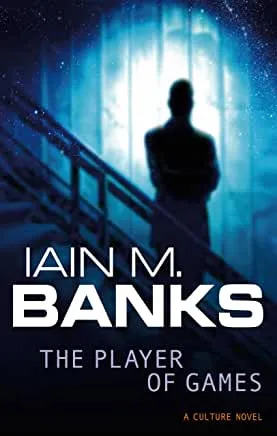
Everybody says this is the best one to start with. It’s a straightforward, highly political, witty, and involves a story about a prominent game player sent halfway across the galaxy to topple an oppressive regime by beating its emperor at a fiendishly complex board game.
Use of Weapons.
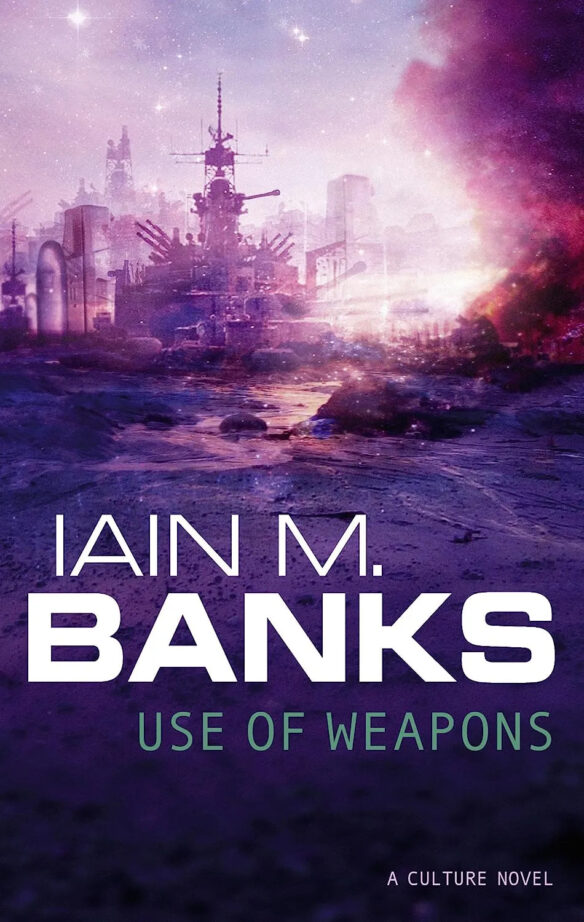
This episodic novel about a mercenary employed by The Culture moves backwards and forwards in time, with some amazing set pieces and a stunning reveal.
The State of the Art.
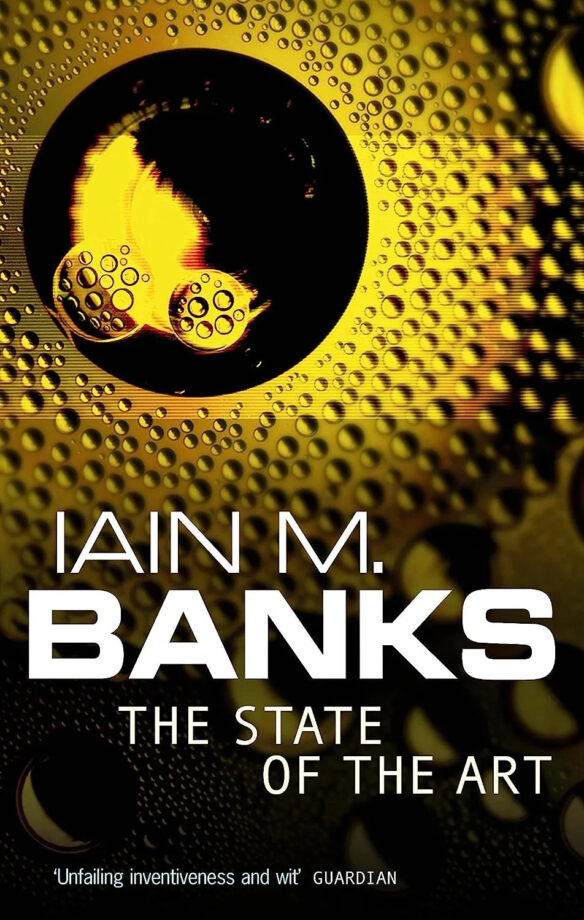
A short story collection that’s mostly worth it for the title novella, which follows the misadventures of a Culture starship that stumbles across the Earth in the 1970s.
Excession.
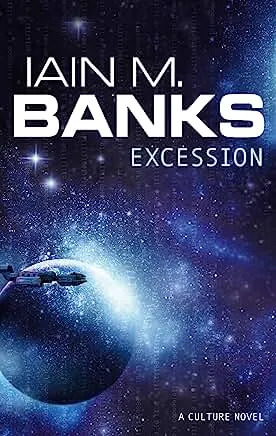
Probably the most challenging and enjoyable of his novels, this one follows an “Outside Context Problem” from the perspective of the Culture’s hyper-intelligent ship Minds. It can be hard to keep track of which ship is saying what, but if you stick with it, you might find why it’s my favourite of his books.
The Hydrogen Sonata.
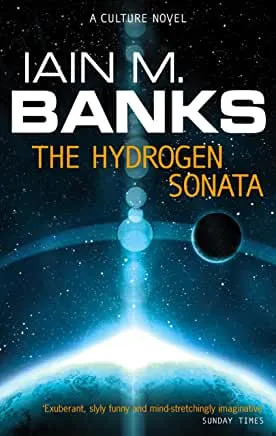
My second favourite of Banks’ Culture novels, and sadly his last. This tells the story of the last days of a civilisation adjacent to the Culture as it prepares to ‘Sublime’ to another form of existence.
[Reprinted with permission.]
Discover more from File 770
Subscribe to get the latest posts sent to your email.

I was one one of those ‘ten people’ in that Eastercon and I have been a big fan since I stumbled upon the short stories on Interzone. 🙂
Pingback: AMAZING NEWS FROM FANDOM: July 23, 2023 - Amazing Stories
I discovered Banks in 2005. I was in London looking for something to read and came across a copy of “Look to Windward” on a bookstore’s remainder table.
I own all of the M. Banks books, and the first and last Banks books (“Wasp Factory” and “The Quarry” remain unread at this point.). I’m working my way through the M. Banks books now.
10 years…
Gareth, thanks for a great and personal essay. I have not read your books, but I’ll give them a try now. Diana, my recommendation is to read “The Wasp Factory”. I argue that it’s genre, in the horror area, and it’s a great first novel. Others might have a different opinion.
I first discovered Iain Banks in mid 90s, a Consider Phlebas on the rather thin SF section of the British Council Library in Ankara, Turkey. Later I purchased the same book from the library, and got him sign it during the Eastercon Gareth mentions.
He was ecstatic when he saw the book, falling apart, read by me at least 10-20 times and also read by many others. His love of a book well-read was incredible.
The first Banks I read was “Against a Dark Background” which was so much fun.
Powell’s latest is the most excellent Descendant Machine which is out on Titan Books in the States.
My favorite is the Ack-Ack Macaque trilogy of which this quote comes from the third novel, Macaque Attack
And here she was on a parallel timeline, in a possibly radioactive dystopia, searching for her best friend—a rude, violent, ungrateful monkey, who smelled like a wet dog and drank like a fish — with only the electronic projection of her dead husband for company.
LearnedLeague is having a One-Day Special quiz on the Culture series later this week. I plan to email Mike when the questions are available for anyone to see. I don’t actually expect to do terribly well on it — I haven’t read all of the Culture novels, and it’s been years and years since I have read any of them.
The quiz setter (“smith” in LL parlance) in the quiz blurb specifically said “no spoilers”. I sent him a private message saying “Well, there goes that ‘Use of Weapons’ question I was anticipating” and he replied saying that was precisely the spoiler he meant.